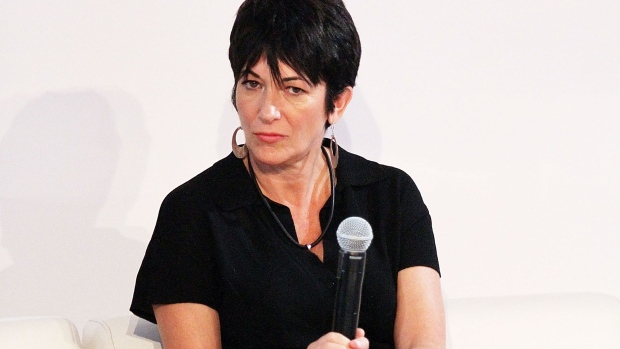Jul 15, 2020
Ghislaine Maxwell's attack-the-victim strategy may backfire
, Bloomberg News

The bail hearing for Ghislaine Maxwell ended with a judge ruling that she must spend the next year behind bars awaiting trial on sex-trafficking charges tied to her former boyfriend Jeffrey Epstein. But it also offered hints at her defense strategy.
During the two-hour video-conference hearing Tuesday, Maxwell’s lawyers questioned the credibility of her accusers as well as the strength of the government’s case.
While the arguments were designed to win bail, they’ll likely be the same ones used at the 58-year-old’s trial, which is scheduled to start next July. The federal charges stem from events that are more than two decades old, Maxwell’s lawyer, Mark Cohen, said, noting that the government doesn’t have “tapes or video” or other such evidence to support the allegations.
“Absolutely, the defense is telegraphing where they’re going,” said David Weinstein, a former federal prosecutor who listened in on Maxwell’s hearing. “While the defense isn’t putting all of their cards on the table, they showed they’re going to argue that she was as much a victim of Epstein -- much in the same way as these girls were -- and that she didn’t know what was going on behind closed doors.”
Cohen briefly took aim at Annie Farmer, one of Maxwell’s accusers. He said she has sued Maxwell and is seeking a payout from a fund set up for Epstein’s victims, Cohen said. Established in May, Epstein’s victims can be compensated by the financier’s estate, valued at more than US$600 million.
That’s a dangerous tactic that might backfire at trial, said David Boies, who represents Farmer and several other women who say they were sexually abused by Epstein and Maxwell.
It’s “a tone-deaf argument” that cost Maxwell her credibility, said Boies, who listened to the hearing remotely.
“To mount a ‘blame the victim’ defense, particularly in today’s world and trying to blame these girls for what happened is so contrary to the evidence, is so contrary to people’s normal sense of morality,” Boies said. “I think that’s just going to enrage a jury if she goes to trial -- which I would not do if I were representing her.”
Boies said he was confident Farmer would stand up to cross-examination if there’s a trial.
Farmer, who addressed the court by telephone, urged the judge not to grant Maxwell bail, calling her a “sexual predator who groomed and abused me.” Maxwell “lied under oath and tormented her survivors,” Farmer said.
Boies said that Farmer was a 16-year-old who “wanted to go to college” when she met Maxwell.
“Maxwell and Epstein tell Annie and her mother ‘we’re having a group of high school students to this ranch to help them get into college,”’ Boies said. “But when Annie gets there, there are no high school students, all these claims are fraudulent and she’s in this isolated place in New Mexico.”
Remote Hearing
Because of the pandemic, Maxwell’s hearing was held remotely with press and the public permitted to hear arguments over the phone. About 60 members of the press were allowed to watch the proceeding on monitors in a jury room in the Manhattan courthouse, with the judge, lawyers and Maxwell all in different locations.
Prosecutors also offered detail on their evidence, saying they have travel records, photographs and other documents that will support the charges.
Along with Farmer’s remarks, Assistant U.S. Attorney Alison Moe read from a letter written by another of Maxwell’s alleged victims, who asked to be identified only as Jane Doe. It’s possible that the woman may testify at the trial as well.
“Without Ghislaine Maxwell, Jeffrey Epstein could not have done what he did; she egged him on,” the woman said in the letter. She called Maxwell “a monster.”
The judge scheduled the trial for July 12. The defense must file its pretrial motions by Dec. 21.
--With assistance from Bob Van Voris.


